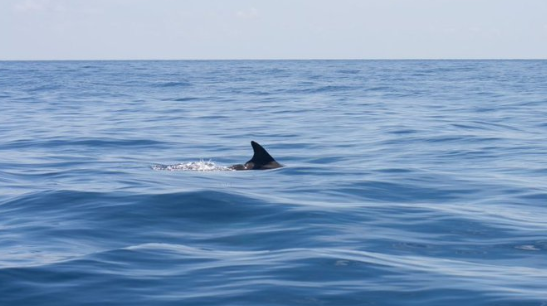In an unexpected twist, marine biologists have discovered high levels of cocaine in Brazilian sharpnose sharks, earning them the nickname “Cocaine Sharks.” This groundbreaking discovery marks the first time that cocaine has been detected in sharks, revealing the extent of drug pollution in marine environments.
Sharks off the coast of Brazil test positive for cocaine, prompting wild theories https://t.co/VIXwShxRyy pic.twitter.com/a0VuhUQUwm
— New York Post (@nypost) July 23, 2024
The study, conducted near Rio de Janeiro, found that all 13 sharks tested positive for cocaine, and all but one also tested positive for benzoylecgonine, a primary metabolite of cocaine. These findings were published in the journal Science of the Total Environment, highlighting a new area of concern for marine life and environmental health.
Interestingly, some of the sharks were pregnant, but the research did not delve into how cocaine exposure might affect their unborn offspring. The study, carried out by the Oswaldo Cruz Foundation, is the first to investigate the presence of cocaine and benzoylecgonine in free-ranging sharks, shedding light on a previously unexplored issue.
The source of cocaine contamination in these marine animals remains uncertain. While the study did not pinpoint the exact origins, experts suggest that the drug could be entering the ocean through various means. Possible sources include illegal drug labs, excrement from drug users, or even trafficking incidents where cocaine is lost or discarded. However, the researchers indicated that dumping by traffickers is less likely to be the primary source.
Sharks off the coast of Rio de Janeiro have tested positive for cocaine, scientists say.
Read more: https://t.co/VmYEoQdblP pic.twitter.com/cyMmTHi7fr
— WFLA NEWS (@WFLA) July 23, 2024
Brazil is known as one of the major consumer markets for cocaine in South America, which could explain the drug’s presence in the coastal waters. The study calls for further investigation into how cocaine reaches these waters and the broader implications for marine life. The Brazilian sharpnose shark, in particular, is highly susceptible to this form of pollution because they do not migrate far from their coastal habitats, making them more vulnerable to contaminants in the water.
The phenomenon of “Cocaine Sharks” isn’t entirely new to scientists. Last summer, headlines emerged suggesting that sharks in Florida might be displaying strange behaviors due to cocaine pollution, as reported by The Guardian. Dr. Tracy Fanara, a scientist quoted in the report, emphasized that while “Cocaine Sharks” makes for a catchy headline, it highlights a serious issue: the pervasive impact of human activities on aquatic ecosystems.
Fanara pointed out the broader problem of contaminants from human use entering our water systems, affecting all forms of aquatic life. This discovery serves as a stark reminder of the interconnectedness of human actions and the environment, underscoring the need for more responsible waste management and environmental stewardship.
Sharks have tested positive for cocaine off Brazil’s coast, according to a new scientific study. https://t.co/Or1YMfX10K pic.twitter.com/L22otFUVQM
— FOX26Houston (@FOX26Houston) July 23, 2024
Major Points:
- For the first time, cocaine and its primary metabolite, benzoylecgonine, were found in the muscles and livers of Brazilian sharpnose sharks near Rio de Janeiro.
- All 13 sharks tested positive for cocaine, with the research conducted by the Oswaldo Cruz Foundation, highlighting a new environmental concern.
- The study did not identify the exact source of the cocaine, though possibilities include illegal labs, drug user excrement, and drug trafficking incidents.
- Brazil’s status as a major cocaine consumer market raises concerns about drug contamination in coastal waters, particularly affecting non-migratory species like the Brazilian sharpnose shark.
Lap Fu Ip – Reprinted with permission of Whatfinger News


